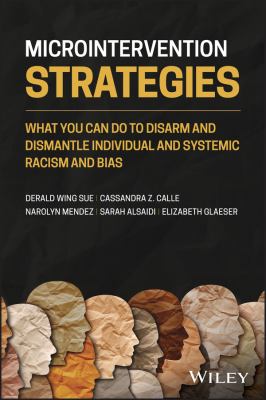
print
|
Microintervention strategies : what you can do to disarm and dismantle individual and systemic racism and bias
Copies
1 Total copies, 1 Copies are in,
0 Copies are out.
Language
English
Dimensions
23 cm.







